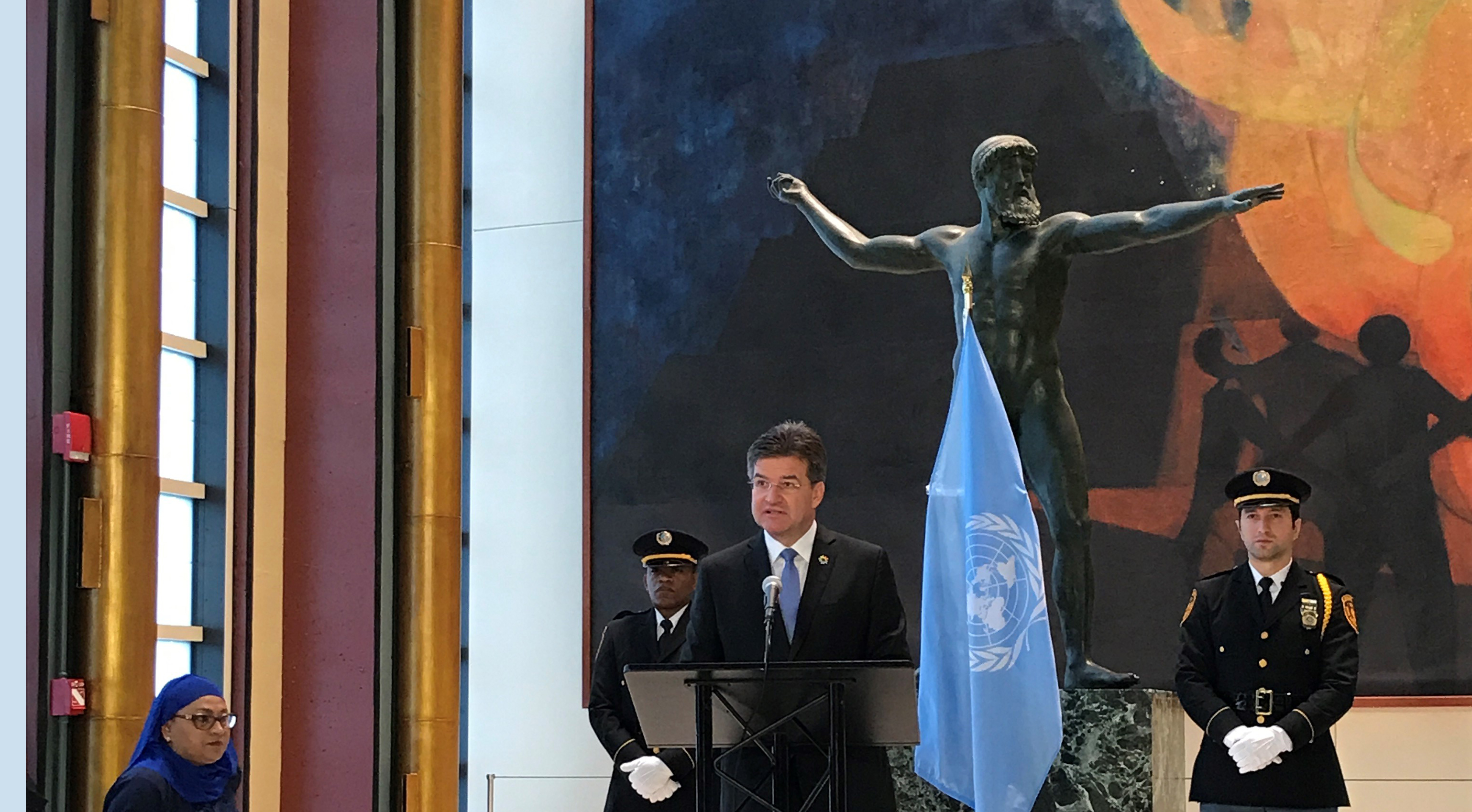Commemorative Event for UN Day 2017

– As delivered –
Statement by H.E. Mr. Miroslav Lajčák, President of the 72nd Session of the UN General Assembly, at the Commemorative Event for UN Day 2017
Good morning Excellencies, ladies and gentlemen, dear colleagues,
Today we celebrate the United Nations’ birthday.
Seventy-two years ago, the Charter of the United Nations came into force on 24 October 1945. After being signed on 26 June 1945 by 50 countries, the first country to ratify the Charter was the United States on 8 August. But it was on 24 October that Poland, Ukraine and the Soviet Union ratified the Charter. This met the requirement for ratification by all five permanent members of the Security Council and a majority of the signatory states.
Since that day, the world has changed significantly. And the Organisation has been evolving with it. Membership has grown to 193 countries from every region. The challenges have changed but our joint resolve to confront them together must not. We must reinforce action to meet the purposes set out in Article 1 of the Charter:
– to maintain international peace and security;
– to develop friendly relations among nations;
– to solve economic, social, cultural and humanitarian problems; and
– to promote respect for human rights and fundamental freedoms.
The Charter commits us all to the purpose of being ‘a centre for the harmonising the action of nations’ to achieve these goals.
I maintain an abiding faith in the importance of multilateralism. As our founders knew, it is only through collective action that we can achieve the progress needed to fulfil these aims. While each country is sovereign and independent, we cannot afford unilateralist approaches that threaten to unravel the fabric of global security, development and harmony.
The United Nations remains the best forum for dialogue to achieve these goals. Each Member State must reinforce its commitment to abide by the Charter. This enables the Organisation to strengthen its role as the main mechanism for joint action to address global challenges.
Our shared commitment to the principles of the Charter also require us to look practically at the new realities the world faces and to adapt our United Nations to meet them.
The UN was not created for countries. It was created on behalf of people and for people.
Dear colleagues,
Today’s anniversary is another opportunity to remind ourselves that the United Nations was not created for countries. It was created on behalf of people and for people. As Dag Hammarsjkold said “The United Nations was not created to take mankind to heaven but to save humanity from hell.” We must ensure that all our work benefit of our peoples. During this session, I am making this a priority. Our structures and mechanisms must enable us to effectively respond to the challenges they face and the aspirations they hold.
Dear colleagues,
The United Nations has to be about people, not just the people it serves but also the people who serve under its flag. I want to recognise another group of people this morning. They are indispensable to the work we are doing. These are the men and women who are often unseen and unheard but are the engines of the United Nations: the staff.
As international civil servants operating with the highest standard of professionalism, ethics and passion, you are enabling the United Nations to fulfil its purpose. We have peacekeepers in the field, we have researchers, programme staff, technical staff and service staff. Every one of them doing their part to make the United Nations operate and helping us to collectively deliver on our mandate.
I commend the Staff Association for organising this commemorative event this morning. It is a demonstration that the people who work within this great Organisation understand the importance of its work.
Excellencies, Ladies and gentlemen,
As we mark the United Nations’ birthday, let us place its founding principles as our daily guide. Let us work with fervour to achieve its common purpose. Let us continue to jointly respond to shared challenges and forge a future of hope and dignity for all people.
Yes we all have separate backgrounds, different cultures and varied national experiences. But in the end, we have one planet and we are one humanity. As a truly universal mosaic, the United Nations must continue to be the greatest champion for development, human rights and peace for all people.
I thank you.